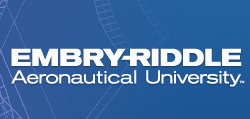Presentation Type
Paper Presentation
Select Topics
Visualization
Student Poster Abstracts, available categories:
Freshman/Sophomore Engineering Design Teams
Abstract
A significant aim of research concerning human intelligence is to develop a comprehensive cognitive map of the human intelligence structure. The evolution of this knowledge base is mirrored through the chronological development of models which frame cognitive domains. The domain of Visual Processing (Gv), commonly known as spatial ability, is a domain which has seen significant advances in the pertinent knowledge base. Models framing this cognitive structure are arguably under-evolved through a lack of representation of factors identified in contemporary research. This paper presents the initial conception of a more comprehensive theoretical framework which builds upon existing theory. It is envisioned that such a framework could support further research exploring the nature of thinking in graphics and other related disciplines. A research agenda is discussed concerning the validation of this framework and its utilization in the holistic assessment of spatial ability.
Framing Spatial Cognition: Establishing a Research Agenda
A significant aim of research concerning human intelligence is to develop a comprehensive cognitive map of the human intelligence structure. The evolution of this knowledge base is mirrored through the chronological development of models which frame cognitive domains. The domain of Visual Processing (Gv), commonly known as spatial ability, is a domain which has seen significant advances in the pertinent knowledge base. Models framing this cognitive structure are arguably under-evolved through a lack of representation of factors identified in contemporary research. This paper presents the initial conception of a more comprehensive theoretical framework which builds upon existing theory. It is envisioned that such a framework could support further research exploring the nature of thinking in graphics and other related disciplines. A research agenda is discussed concerning the validation of this framework and its utilization in the holistic assessment of spatial ability.
